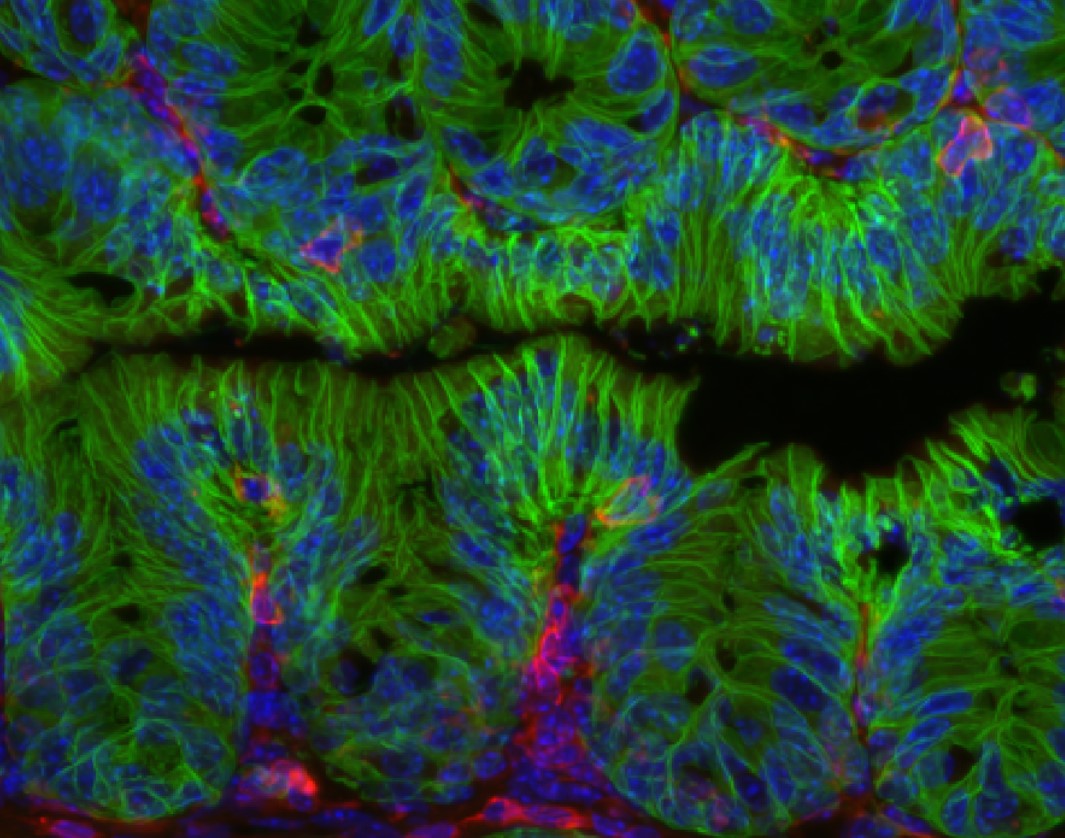Member Spotlight - Q4 2020
12/10/2020
Research from the lab of SMI Member Dr. Theresa Alenghat was published this quarter in Nature. Dr. Alenghat has pioneered studies revealing that epigenetics enables epithelial cells to sense commensal bacteria and convey this information to mucosal tissues. In their recent Nature study, the Alenghat lab discovered that the intestinal microbiota generates inositol trisphosphate (IP3) that can activate HDAC3 (histone deacetylase 3, a epigenetic-modifying protein that regulates gene expression) in epithelial cells of the mammalian intestine. While short chain fatty acids from commensal bacteria instead inhibit HDACs, the study highlighted HDAC3 as a sensor of metabolites that can balance mucosal responses to distinct microbial cues. The research team also used gnotobiotic approaches and mouse models of intestinal damage and inflammation to demonstrate that epithelial repair was enhanced by IP3 and phytate, a dietary product that bacteria break down to produce IP3. They saw similar growth with IP3 when treating intestinal organoids generated from intestinal tissue of patients with Inflammatory Bowel Disease. Dr. Alenghat is the recipient of several highly competitive grants, including awards from the Pew Charitable Trust, Burroughs Wellcome Fund, and Kenneth Rainin Foundation.
The study and additional description can be accessed at the following links:
https://www.nature.com/articles/s41586-020-2604-2
https://www.cincinnatichildrens.org/news/release/2020/treating-inflammatory-bowel-diseases
The Alenghat lab currently has open postdoctoral positions:





